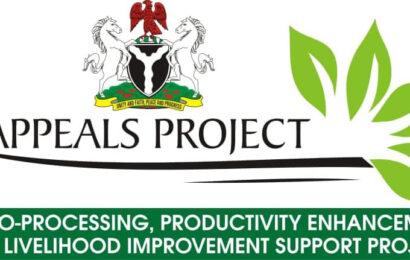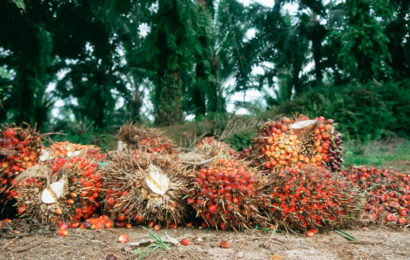Researchers working under the International Institute of Tropical Agriculture led Cassava Weed Management Project (IITA-CWMP) will this week share findings and recommendations on how to tackle weeds in cassava farming systems.
The sharing of research findings is part of activities marked for a week-long annual review and planning meeting and Steering Committee meeting scheduled to hold 27-30 March 2017 at IITA in Ibadan.
“We are optimistic that the key findings from our research will help farmers to tackle the problem of weeds in cassava, with the view to having more yield,” says the Project Leader of IITA-CWMP, Dr Alfred Dixon, who is also a Director with IITA on Monday.
Declaring the meeting open, Dr Kenton Dashiell, IITA Deputy Director General, Partnership for Delivery, said the goal of the project was to take off drudgery due to weeding in cassava farming systems.
“I am happy that this meeting will share findings that will impact positively on weed control,” Dr Dashiell said.
Grown on about 7 million hectares, cassava is a major staple in Nigeria and it has transited from a food security crop to a cash crop. However, yield per ha of the root crop is about 8 tons per ha or less than half the amount realised on research stations. One of the major factors affecting the yield of cassava is weeds. Most of those involved in weeding are women and children, often times skipping classes to assist in weeding in Nigeria.
A statement issued by Communication & Knowledge Exchange Expert. Godwin Atser explained that in 2014, the Cassava Weed Management Project was conceived to address the problem of weeds in cassava. The 5-year project which is supported by the Bill & Melinda Gates Foundation is exploring diverse weeds control methods including the use of simple motorised implements, use of safe and environmentally friendly herbicides, and the use of best-bet agronomic practices.
This year, which is the fourth, researchers, will make available findings of what has been done over the period.
Lawrence Kent of the Bill & Melinda Gates Foundation said the findings of the project would contribute to improvement of cassava with positive impact on women and children who bear the burden of weeding in cassava.
“Our major task in this meeting is to translate research findings into recommendations that farmers can use to improve cassava farming and their livelihoods,” he said.
Dr Dixon said the project is in an exciting phase. “This is an exciting time for us… Because we are going to begin the sharing of new findings to farmers and farmers will begin to benefit,” Dr Dixon said.
The IITA Cassava Weed Management Project is being implemented in Nigeria by IITA in partnership with the National Root Crops Research Institute (NRCRI) Umudike, Federal University of Agriculture Abeokuta, University of Agriculture Makurdi, and the state-based Agricultural Development Programs of Abia, Benue, Ogun, Oyo; and non-governmental organisations including the Justice Development and Peace Movement (JDPM) in Oyo and Abeokuta, and KOLPING in Abia.
Photo Caption: Deputy Director-General, International Institute for Tropical Agriculture(IITA),Ibadan, Dr Kenton Dashiell; Project Leader, Cassava Weed Management Project, IITA, Dr Alfred Dixon; Senior Programme Officer, Bill & Melinda Gates Foundation, Lawrence Kent; and the Technical Advisor,(Africa & Middle East) ,Agronomic Product Development, Bayer CropScience, Dr Mohammed Elsherif, at the 2017 Cassava Weed Management Project annual workshop at IITA, Ibadan on Monday.






